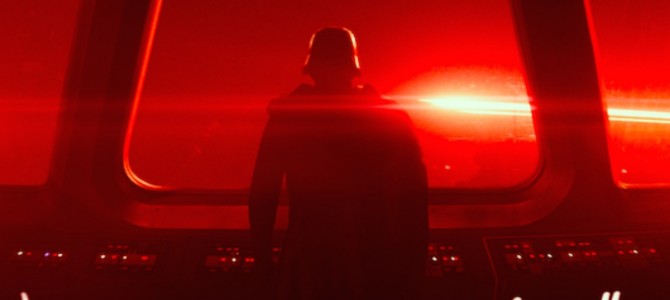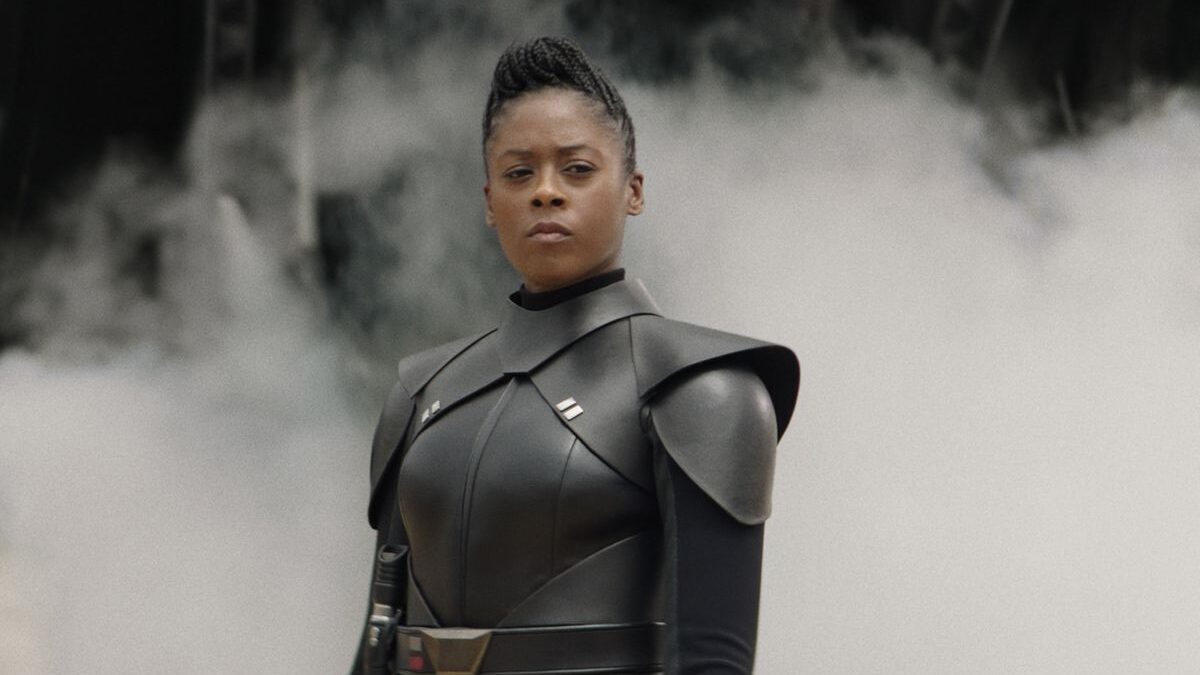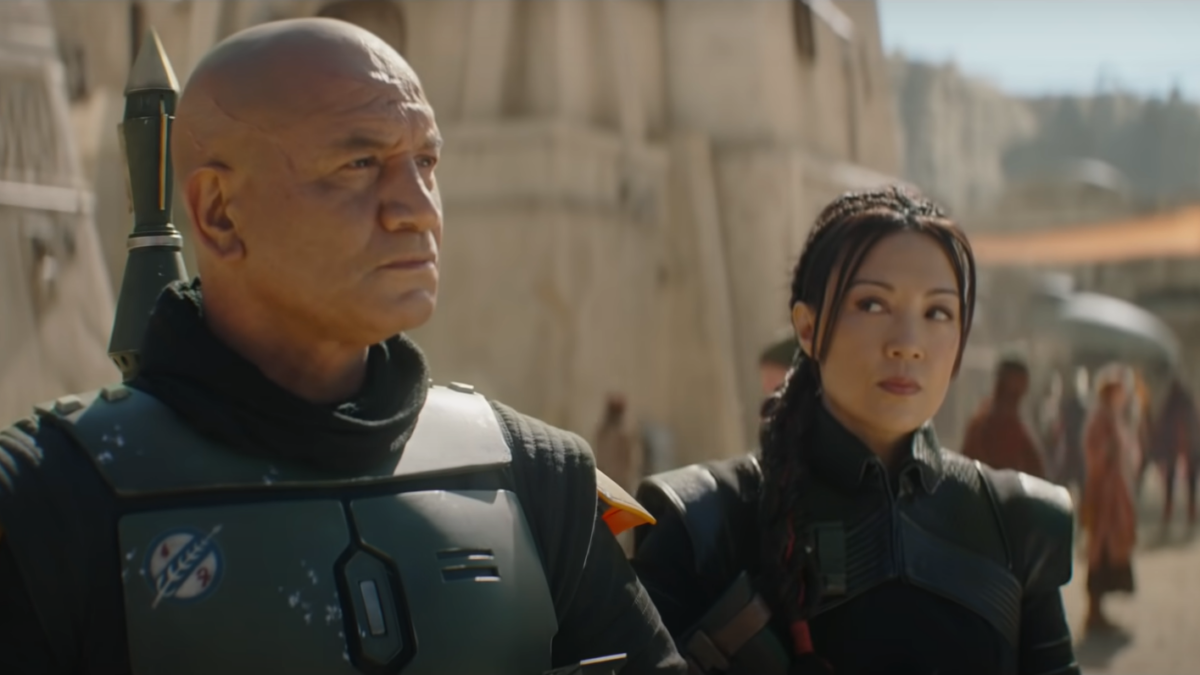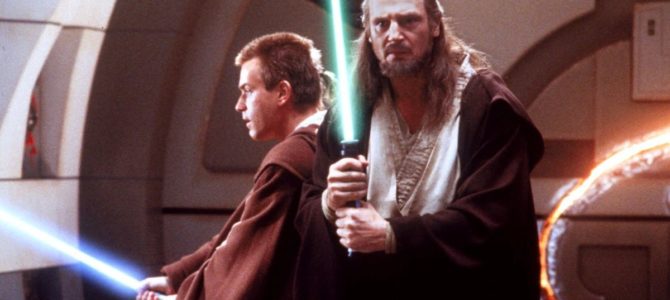
So we just got our first look at the movie poster for the new Star Wars film, and hoo boy, it’s a hot mess.

We can only hope that the plot of the film does not match this poster.
I count 14 separate characters, and Luke Skywalker isn’t even one of them (unless he’s the one in the mask, and that would be a major spoiler). As someone on my Facebook feed put it, if every one of these represents a major character and plot point, then the film is going to be six hours long.
More likely, they will all be crammed into a regular-length film that’s chopped into a bunch of micro-scenes. I once read a film script in which I calculated that the average scene length was 40 seconds. It gives a whole new meaning to Short Attention Span Theater. I’m steeling myself to expect the same thing when this film opens.
For comparison, here is the original poster from the first Star Wars film.

It features only five characters if you count the ghostly visage of Darth Vader, and two of them are clearly front and center. Han Solo doesn’t even make the cut.
So early indications are not promising. This is looking to be another J.J. Abrams extravaganza of lens flares, explosions, and confusing plot lines.
And yet, I’m not worried that he will ruin the franchise.
To begin with, George Lucas has already ruined Star Wars far beyond our poor power to add or detract. There’s the re-mastered original trilogy, in which Han doesn’t shoot first. But most of all, there’s the prequel trilogy in which Lucas systematically diminishes much of what people liked about the original trilogy. We find out that Darth Vader was seduced to the Dark Side because he was a whiny and petulant adolescent. And because, in a society where people have mastered faster-than-light travel, they are still paralyzed by fear that women will die in childbirth. Or something.
Yoda’s distinctive style of speech, which sounded wise and mysterious — “Do or do not, there is no try,” will be with us for a while — was reduced to a lame formula. (At one point in Episode III, Yoda tells a clone trooper, “Establish a perimeter, you must.” They thought they could cut and paste prosaic dialogue from a cookie-cutter action flick and just reverse the sentence order to make it sound profound.) Even the cheesiest part of the original trilogy, the woozy New Age mysticism of “The Force,” was somehow not improved by being demystified with a pseudo-scientific explanation.
But the more important reason Abrams can’t ruin Star Wars is because, let’s be honest, the original trilogy was not all that great. (You do realize that when you throw things at your computer screen, you can’t actually hit me, right?)
But seriously, it’s full of plot points that don’t make sense when you think them through, clunky bits of dialogue, and cloying cutesiness. I mean, in the final installment, the Galactic Empire is defeated by an army of teddy bears. And it falls into a whole series of clichéd action-movie tropes, including the army of mooks who can’t seem to hit anything they aim at.

So sure, you can sit around and pick apart Star Wars forever, but that kind of misses the point. The reason we love Star Wars is that we first saw it when we were seven, so we never noticed these flaws and were free to focus on the things that were really appealing about the Star Wars universe.
We often freight our popular culture with too much seriousness, trying to treat every movie franchise like it’s Homer or Shakespeare — perhaps because we so diligently ignore Homer and Shakespeare — and therefore ask too much of it. Better to enjoy it for what it is.
Star Wars tells simple tales of heroes and villains, where with pluck and determination the good guys ultimately win. I remember the impact of this because I’m just old enough to recall the cultural context in which Star Wars first appeared. The 1970s was the first great era of the “anti-hero” who inhabited a grey, washed-out (literally, look at the colors in films from the early 1970s, which were shot in every shade of beige), and morally ambiguous universe. It was a lot like today’s “prestige TV,” actually. Then in 1977, Star Wars brought us a return to bright, primary colors, and old-fashioned tales of good versus evil. You should have heard how the sophisticated types derided it — along with 1978’s Superman — as “simplistic” and “escapist.” (Why yes, we did want to escape from the 1970s, and we even made movies fantasizing about it.) For this reason, I have long thought that George Lucas and Steven Spielberg are the leading conservative filmmakers of our age. Regardless of their personal politics, they pioneered a conspicuously “retro” return to tales of good and evil with heroes who embody old-fashioned virtues. This is precisely what young people are looking for.
The second reason we love Star Wars is Han Solo, a classic archetype of the American individualist, and let’s face it, the only character in the whole saga who is really fun. I submit that the main reason the prequels were not well received is because he was not in them. We got moody, teenage Anakin instead, and he was a pill.
But the big reason we like Star Wars is that, quite apart from the plot and characters, it was a feat of imagination with a vast universe of spaceships, bizarre alien creatures, strange new planets, and — a big draw for boys — futuristic weapons. We come for the scenery, for the special effects, and for the look and feel of the place because they are just familiar enough to be understandable but weirdly different enough to be exciting.
It’s helpful to contrast Star Wars to Star Trek, a franchise that Abrams did ruin. He ruined it by creating a time travel plot that allowed him to throw out the entire timeline of Star Trek’s previous incarnations. Then he gave up the only advantage of this approach — freedom from existing story lines — by pilfering old Star Trek stories for characters and plot ideas. But most of all, he ruined it by turning it into just another action movie franchise: big on stunts and special effects and light on character development and thoughtfulness. The unique appeal of the Star Trek universe was its interest in big ideas and philosophical themes like the relationship between reason and emotion. Sometimes the films’ “big idea” pretensions were annoying, and they wore Gene Roddenberry’s liberalism on their sleeves. (Star Trek IV was one giant “save the whales” public service announcement.) Sometimes they were interesting explorations of the nature of individualism. But that was the unique brand of the franchise, and Abrams just wasn’t interested in it, so he turned the rebooted films into shoot-em-ups in space.
Fortunately for the Star Wars film, this franchise does not depend on so delicate a formula. Start with a young person’s journey of self-discovery set against a galactic battle between good and evil. Let him (or her, from the looks of the new film) find friends and a mentor along the way. Throw in a tragic loss and a little spooky stuff about the temptations of the Dark Side. And film it all with spectacular special effects, creative new designs of spaceships and robots, spectacular new alien landscapes, and oh yes, exciting battles. This is a shoot-em-up in space.
Oh, and they just dropped the final trailer for the film, and it looks like that’s pretty much what we’re going to get.
Sure, there’s a good chance Abrams is going to give us an over-complicated, unwieldy plot, with lots of minor characters whose names we can’t remember. And there will probably be some big crazy plot twist that we either see coming a mile away or can’t make any sense of.
But as long as he delivers on the rest of the formula, we probably won’t care.
Follow Robert on Twitter.









